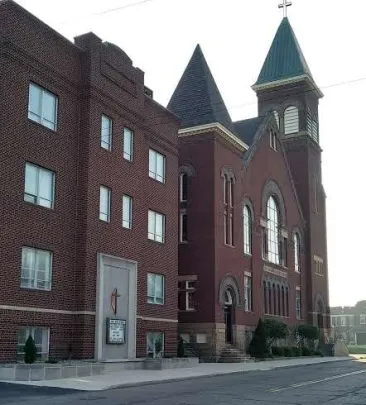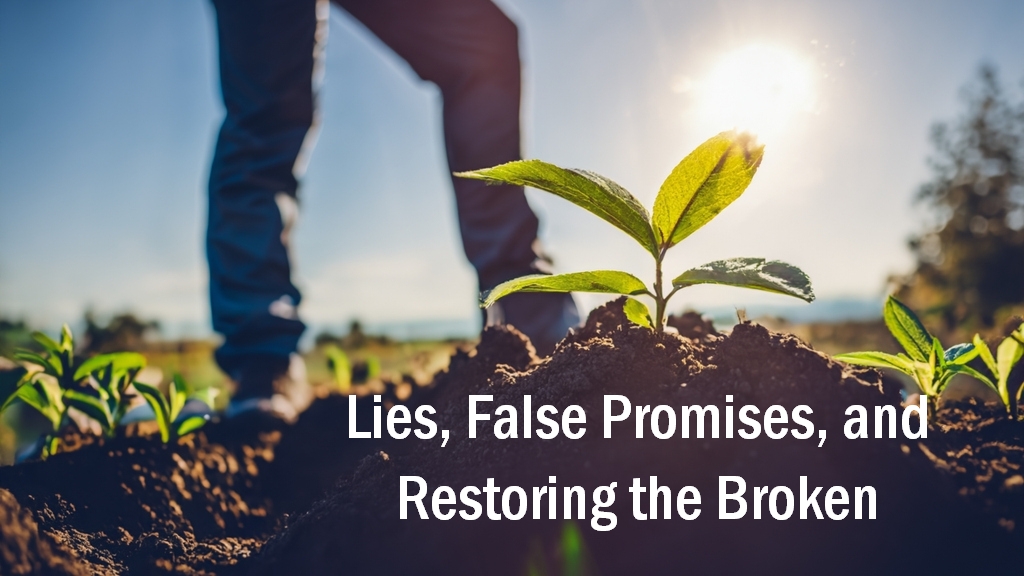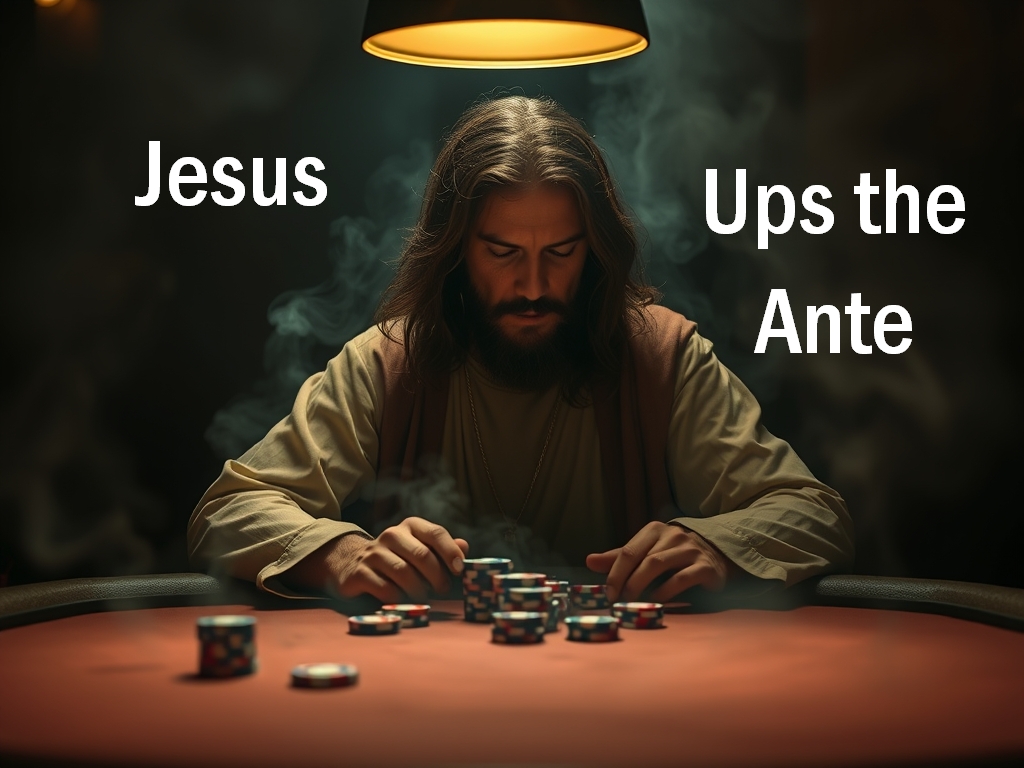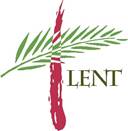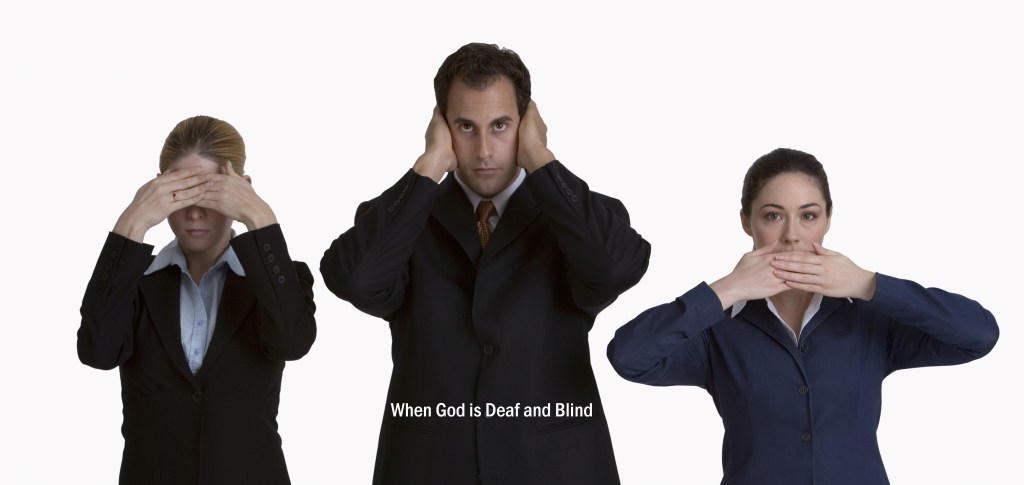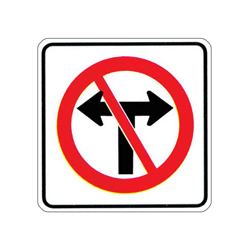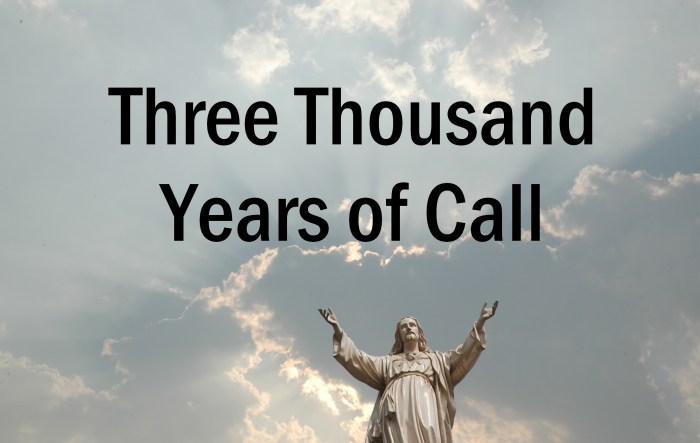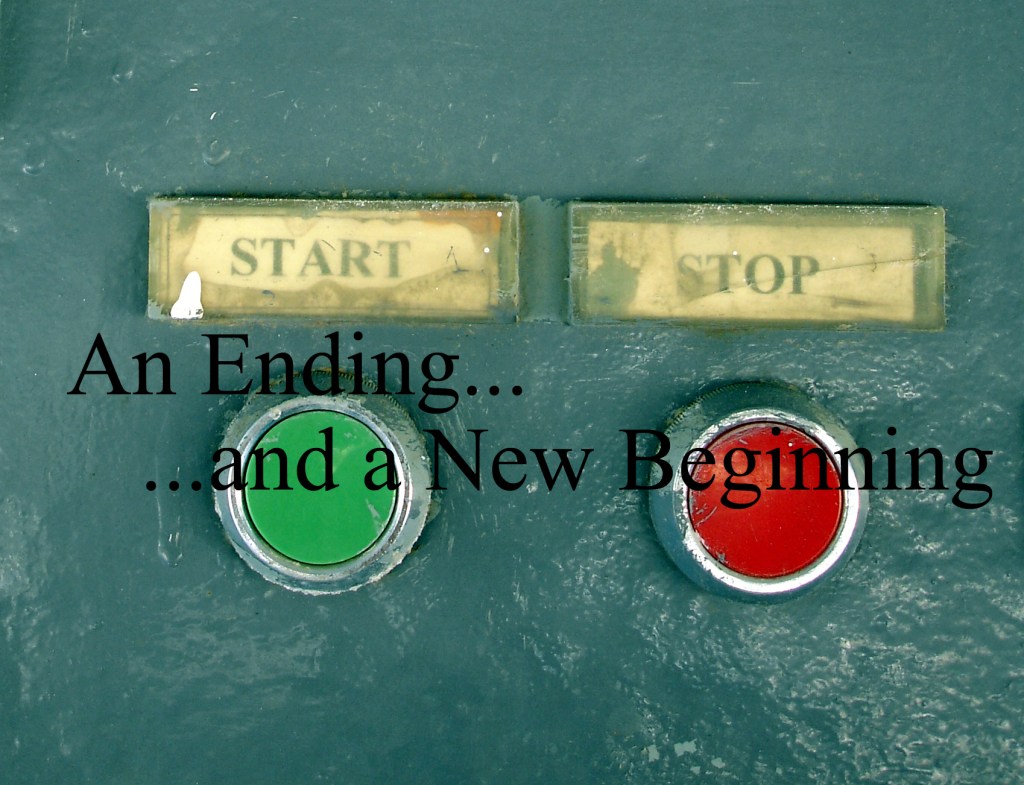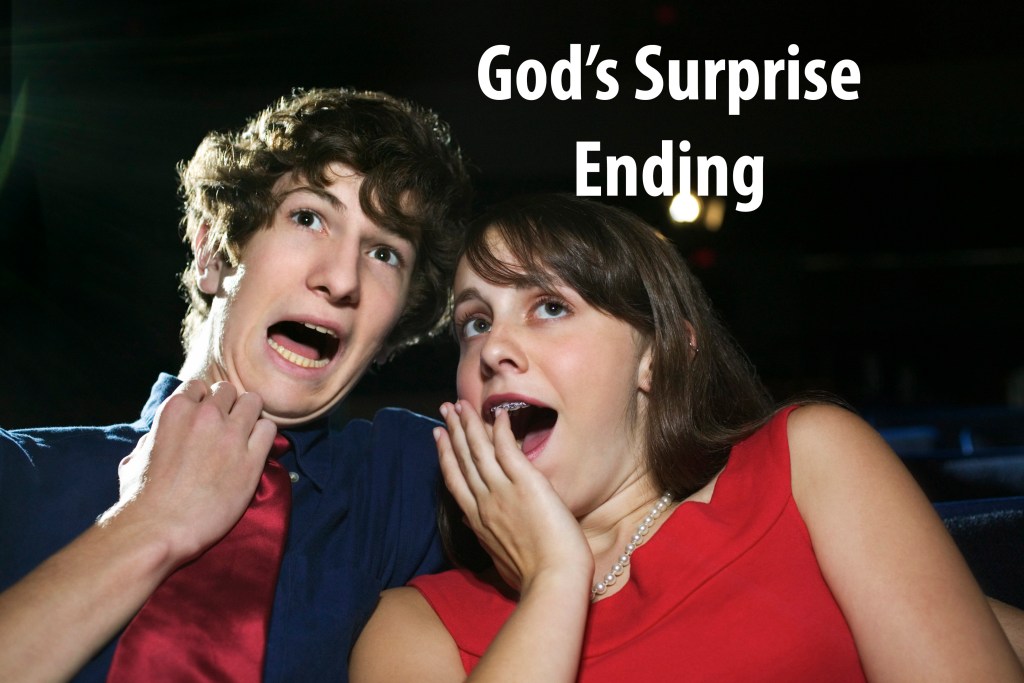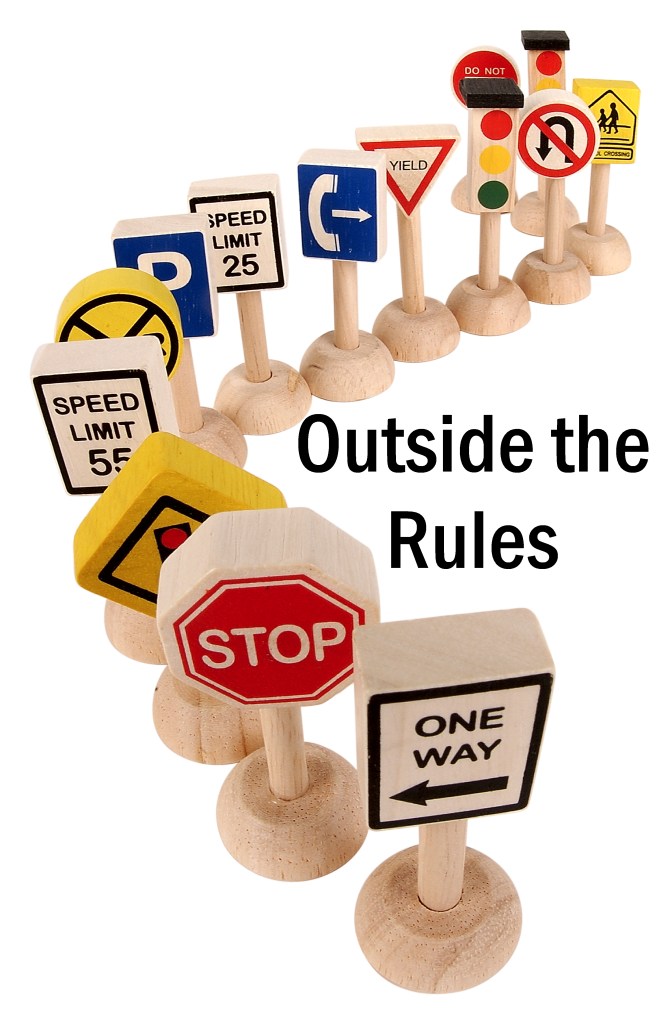
Genesis 12:1-4a John 3:1-17 Romans 4:1-5, 13-17
One of the accusations that people make against Christianity, or even against religion in general, is that it’s just a list of rules to follow. Sometimes the accusations are specifically that the rules were written by male clergy to perpetuate the existing patriarchal power structures and to enrich the church and the clergy. But while there might have been some truth to some of that at one time, and while there are certainly a few megachurches and televangelists to whom this still applies, there are very few clergy who get rich from serving the local church, and few churches that we would likely label as wealthy. Christ Church has an endowment, but while it may look like a lot, it’s less than many people have saved for retirement and generates just enough income to help offset, but not completely pay for, the maintenance costs of our building. More to the point of today’s message is that much of Christianity exists because Jesus, Jesus’ ministry, and the church that grew up to follow him, broke the accepted rules. But, before we dive too deeply into that, let’s go back to one of the origin stories of our faith, to the calling of Abram, who would become Abraham, the father of the Jews and the people whose descendants would eventually include Jesus and bring about Christianity.
Reading from Genesis 12:1-4a, we hear this:
12:1 The Lord had said to Abram, “Go from your country, your people and your father’s household to the land I will show you.
2 “I will make you into a great nation, and I will bless you;
I will make your name great, and you will be a blessing.
3 I will bless those who bless you, and whoever curses you I will curse;
and all peoples on earth will be blessed through you.”
4 So Abram went, as the Lord had told him; and Lot went with him. Abram was seventy-five years old when he set out from Harran.
The story itself is simple. God called Abram to trust him, to go into the unknown, to travel to an unknown place, for an undefined and undescribed future, that would, eventually, bring blessings to him and to his family. And, despite the unbelievable, and almost unimaginable, level of trust that this required, at the age of seventy-five, Abram walked away from his entire life, completely redefined who he was, and Abram went.
Many things happen between the time of Abraham and the time of Jesus, but it is a story with which you are familiar. After the time of Abraham, the people of Israel lived as slaves in the land of Egypt and were rescued from their slavery by the power of God working through the leadership of Moses. After leaving Egypt and escaping across the Red Sea from the pursuing Egyptian army, God gave Israel the Law and the Commandments as guides to their worship and to knowing what their God expected of them. But, by the time of Jesus, the worship of God had become so academically over-studied and so extensively over-interpreted, that it became increasingly rigid and less of what God intended for it to be. And it is in that environment that Jesus has a discussion with Nicodemus, a man who had dedicated his life to following the rules and doing the things that they believed that God wanted. We hear that story in John 3:1-17, which says:
3:1 Now there was a Pharisee, a man named Nicodemus who was a member of the Jewish ruling council. (Note: This is the Sanhedrin, seventy-one members who ruled over Israel) 2 He came to Jesus at night and said, “Rabbi, we know that you are a teacher who has come from God. For no one could perform the signs you are doing if God were not with him.”
3 Jesus replied, “Very truly I tell you, no one can see the kingdom of God unless they are born again.”
4 “How can someone be born when they are old?” Nicodemus asked. “Surely they cannot enter a second time into their mother’s womb to be born!”
5 Jesus answered, “Very truly I tell you, no one can enter the kingdom of God unless they are born of water and the Spirit. 6 Flesh gives birth to flesh, but the Spiritgives birth to spirit. 7 You should not be surprised at my saying, ‘Youmust be born again.’ 8 The wind blows wherever it pleases. You hear its sound, but you cannot tell where it comes from or where it is going. So, it is with everyone born of the Spirit.”
9 “How can this be?” Nicodemus asked.
10 “You are Israel’s teacher,” said Jesus, “and do you not understand these things? 11 Very truly I tell you, we speak of what we know, and we testify to what we have seen, but still, you people do not accept our testimony. 12 I have spoken to you of earthly things, and you do not believe; how then will you believe if I speak of heavenly things? 13 No one has ever gone into heaven except the one who came from heaven—the Son of Man. 14 Just as Moses lifted up the snake in the wilderness, so the Son of Man must be lifted up, 15 that everyone who believes may have eternal life in him.”
16 For God so loved the world that he gave his one and only Son, that whoever believes in him shall not perish but have eternal life. 17 For God did not send his Son into the world to condemn the world, but to save the world through him.
Nicodemus, unlike some other Pharisees and leaders in Israel, openly accepts that Jesus is a teacher that has been sent by God. This seems obvious because of the miracles and other signs that Jesus performed. But he did not understand when Jesus said that no one could enter the kingdom of God without being born of the spirit. And, while Jesus criticizes church leadership for their failure to understand, he patiently explains to Nicodemus that anyone who wants to go to heaven must follow someone who knows how to get there and, since Jesus is the only person that has already been there, it would be wise to follow him. Anyone who believes in Jesus will have eternal life and live with him in God’s house. But Jesus also makes and important proclamation that is often ignored but is important for us to remember. Jesus says that “God did not send his Son into the world to condemn the world, but to save the world through him.” And, if we make the logical conclusion that we should follow his example, we must therefore understand that our job is not to condemn sinners for sinning, but instead to point them toward Jesus so that they can find the rescue that we have already found.
But why is this conversation, and what it represents, so disruptive to the concept of following the rules? And why does Jesus, and the people that follow him, deviate so strongly from the rules that everyone thought that they knew about following God? Paul answers this question in his letter to the church in Rome, and in Romans 4:1-5, 13-17 we hear this explanation:
4:1 What then shall we say that Abraham, our forefather according to the flesh, discovered in this matter? 2 If, in fact, Abraham was justified by works, he had something to boast about—but not before God. 3 What does Scripture say? “Abraham believed God, and it was credited to him as righteousness.”
4 Now to the one who works, wages are not credited as a gift but as an obligation. 5 However, to the one who does not work but trusts God who justifies the ungodly, their faith is credited as righteousness.
13 It was not through the law that Abraham and his offspring received the promise that he would be heir of the world, but through the righteousness that comes by faith. 14 For if those who depend on the law are heirs, faith means nothing and the promise is worthless, 15 because the law brings wrath. And where there is no law there is no transgression.
16 Therefore, the promise comes by faith, so that it may be by grace and may be guaranteed to all Abraham’s offspring—not only to those who are of the law but also to those who have the faith of Abraham. He is the father of us all. 17 As it is written: “I have made you a father of many nations.” He is our father in the sight of God, in whom he believed—the God who gives life to the dead and calls into being things that were not.
Paul explains that Abraham was a faithful follower of God long before the rules were written, long before Moses was born, or generations of priests, scholars, and theologians studied and interpreted the Law, Commandments, and the words of the prophets. No one could ever say that Abraham wasn’t suitably Jewish, or that he couldn’t rest with God, but Abraham didn’t follow the rules that the Pharisees and the leaders of Israel thought were so important. Instead, Paul says, following God isn’t an act of labor in which we work to earn points with God or to, in some other way, earn our way to righteousness by following the rules.
Instead, like Abraham, it is our faith in God, and in Jesus, for which righteousness is credited to us. Yes, Paul says, the Law is important because it tells us about the character of God and the ways in which God wants us to behave, but it is not the law that saves us. In fact, Paul points out, the reason that Abraham would become the father of many nations as God promised, and not just the father of Israel, is that other, non-Jewish, nations can follow the faith of Abraham even if they aren’t descended from anyone in his family. We worship the God of creation and the God that has brought the dead back to life, and anyone can choose to follow God, and his son Jesus Christ. Anyone can put their faith in Jesus, just as Abraham put his faith in God, be credited with the righteousness of God, be accepted into God’s family, and find a place in God’s heavenly home.
Despite begin accused of being agenda driven rule followers, the rules never have been, and never will be, a path that allows us to work our way into the good graces of God. The only path to God is to follow in the footsteps of Abraham, trust God, and put our faith in Jesus.
The rules have their place, but they will never save a single person.
The only thing that can save us from ourselves… is faith in Jesus.
And that’s a lot easier to explain to our friends than a list of rules.
*You have been reading a message presented at Christ United Methodist Church on the date noted at the top of the first page. Rev. John Partridge is the pastor at Christ UMC in Alliance, Ohio. Duplication of this message is a part of our Media ministry, if you have received a blessing in this way, we would love to hear from you. Letters and donations in support of the Media ministry or any of our other projects may be sent to Christ United Methodist Church, 470 East Broadway Street, Alliance, Ohio 44601. These messages are available to any interested persons regardless of membership. You may subscribe to these messages, in print or electronic formats, by writing to the address noted, or by contacting us at secretary@CUMCAlliance.org. These messages can also be found online at https://pastorpartridge.com . All Scripture quotations, unless otherwise indicated, are taken from the Holy Bible, New International Version®, NIV®. Copyright ©1973, 1978, 1984, 2011 by Biblica, Inc.™ Used by permission of Zondervan. All rights reserved worldwide. www.zondervan.comThe “NIV” and “New International Version” are trademarks registered in the United States Patent and Trademark Office by Biblica, Inc.™
Photo by PhotoObjects.net on Freeimages.com
